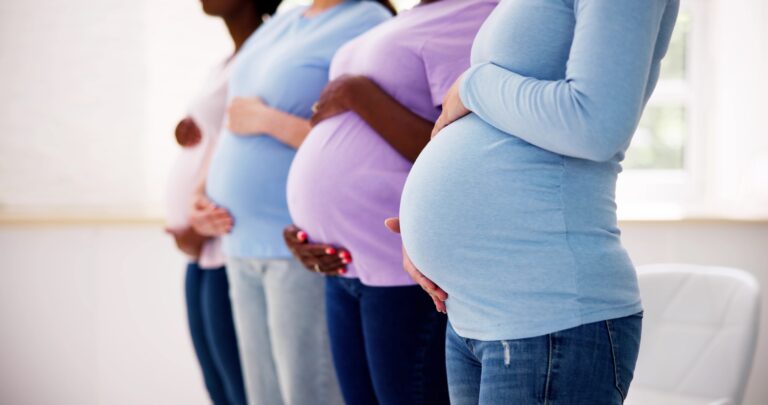14 July – 20 July 2025
This year’s Birth Trauma Awareness Week aims to shine a light on inequalities in maternal care, for example due to age, ethnicity and socio-economic status. We’re proud to support the Birth Trauma Association and be a member of their legal panel. Visit their site to find out more.
At Bolt Burdon Kemp many of our clients, spanning our Women’s Health, Child Brain Injury and Spinal teams specifically, have experienced birth injury and trauma due to inequality in maternal care.
This has to stop. It shouldn’t matter where in the country you give birth, your own background, ethnicity or age – the standard of care you receive should be consistent and fair.
In May 2024, an All-Party Parliamentary Group (APPG) on Birth Trauma highlighted the urgent need for a change in the provision of maternity services across the UK, recognising perinatal care is a postcode lottery. Its subsequent report, ‘Listen to Mums: Ending the Postcode Lottery on Perinatal Care’ describes systemic failures and calls for urgent reform.
Ethnicity
According to MBRRACE’s most recent report, which analysed data from 2020-22, in 2021, 28% of babies in England were born to mothers of non-white ethnic minority origin and Black women were almost four times as likely as white women to die during pregnancy, childbirth or the postnatal period, while Asian women were twice as likely to die as white women.
It is so disheartening to see these figures, especially when looking back at our review of the 2021 MBRRACE report when we were full of hope for increasingly better statistics. And we hear it from clients too – we work with clients from a variety of ethnic backgrounds who tell us how they are treated differently during their labour, or midwife appointments.
If anything, with the huge amount of work and awareness being put into these issues by those campaigning and striving for better outcomes, including the Race Equality Taskforce, several government inquiries and multiple maternity scandals nationally, more now than ever is being done to catapult these issues into the light and yet the figures sadly speak for themselves.
Socioeconomic factors
The maternal mortality rate for women living in the most deprived areas of the UK is more than twice as high as that of women living in the least deprived areas – a completely shocking fact in the UK in 2025
This impacts women in a number of ways. As referenced in the APPG report, many women simply cannot afford to travel to the hospital or their GP practice and therefore miss important antenatal appointments. In addition, the prenatal support available on the NHS is patchy and recent reports show funding is being cut in areas like prenatal metal health, for instance, at a time when demand has never been higher.
We see mothers who are less financially secure suffer more because they don’t have access to the support they need or can’t pay to access the care they need after a traumatic birth, or after suffering injury.
This is a growing problem too – according to research from the Institute of Health Visiting, nearly all UK health visitors (93%) have observed a rise in poverty in the past 12 months, impacting families’ ability to heat their homes, feed their children and travel to crucial health appointments.
Disability
We have seen horrendous examples of pregnant women with physical disabilities experiencing discrimination. Having to deal with a general lack of accessible facilities, for example a shortage of disabled parking and toilets, coupled with some medical staff having preconceived ideas about disability, can mean these mothers face significant barriers to having a baby with the care they require.
Neurodiversity
We have seen neurodivergent clients struggle to receive the information they need in an accessible way throughout pregnancy and birth which heightened the likelihood of a traumatic birth or injury. There is also an inconsistent approach to this issue across NHS Trusts. One client, for instance, gave birth twice in two different areas and had a completely different experience – with one Trust offering a much more tailored delivery of information to accommodate neurodiversity. In contrast, the other Trust did not provide vital information in an accessible way which meant our client struggled to give informed consent.
A recent review in the British Journal of Midwifery, (Stuart and Kitson-Reynolds, 2024) highlighted how pregnancy, birth and the postpartum period are likely to present neurodivergent women with unique challenges and the need for consistency of carers and a personalised and compassionate approach to care.
Whilst awareness is improving, the lack of a consistent approach across maternity services means many women are not receiving the care and information they need in an accessible way.
Language barriers
We’ve acted for several mothers who experienced birth trauma and injury where a language barrier has been a contributory factor in the negligence they suffered.
According to the NHS, “Language barriers are associated with a disproportionate risk of poor birth outcomes, with women and people who give birth struggling to access, engage with maternity services and communicate concerns to healthcare professionals.”
An investigation by the BBC found that a lack of interpreters in the NHS is leading to adverse outcomes in maternity. Interpreting issues, it found, “were a contributing factor in at least 80 babies dying or suffering serious brain injuries in England between 2018 and 2022.”
Age
In 2020, 1 in 4 births in England and Wales were to young people aged 16-24 (Office for National Statistics, 2020).
We have acted, and are acting, for clients who felt discriminated against whilst in labour and throughout their maternity experience, because of their age. One young mother consistently felt her concerns were not taken seriously by midwives when she gave birth and she felt her age was a big factor in how she was treated. This led to her labour being unmonitored, which led to her baby being injured. Mothers, no matter their age, race or background, have to be listened to.
This is particularly serious when you consider the evidence that young mothers (those aged 25 years and under) are at increased risk of experiencing mental illness during pregnancy.
What needs to change?
We need urgent change. As Liberal Democrat MP Helen Morgan, who was among the MPs responsible for the Birth Trauma inquiry, said it was “nothing short of a national tragedy” that so many women in the UK suffer traumatic births.
In this inquiry, we saw a number of recommendations which simply must be followed. This included:
- Staffing and training: Urgent measures to recruit, train, and retain midwives, obstetricians, and anaesthetists to maintain safe staffing levels and provide mandatory training in trauma-informed care.
- Injury prevention: Nationwide implementation of the OASI care bundle to mitigate injuries during childbirth.
- Education and informed consent about birth choices: Comprehensive antenatal classes should be offered, outlining risks, to ensure informed decision-making.
- Continuity of care: Digitisation of health records to enhance communication between primary and secondary healthcare services.
- Legal redress: Extending the time limit for medical negligence litigation related to childbirth from three to five years.
- Addressing inequalities: Targeted efforts to tackle disparities in maternity care, particularly for Black and Asian women and birthing people, with a focus on interpreter services and staff training.
At BBK we see a wide variety of claims arising from birth injury and trauma because of clinical negligence and sadly in so many of these claims, inequality is a contributing factor. We support the recommendations from the recent birth inquiry and encourage anyone who has suffered a traumatic birth to seek support. The Birth Trauma Association has a wealth of information on how to access support.
This blog was written by Sally Simpson, Partner in the Brain Injury team.





